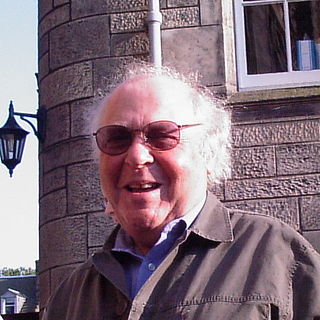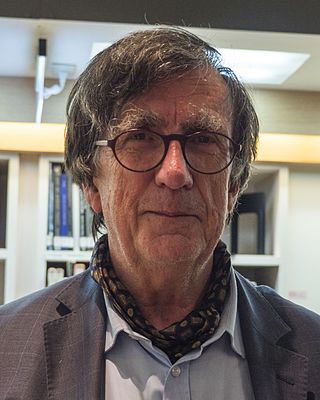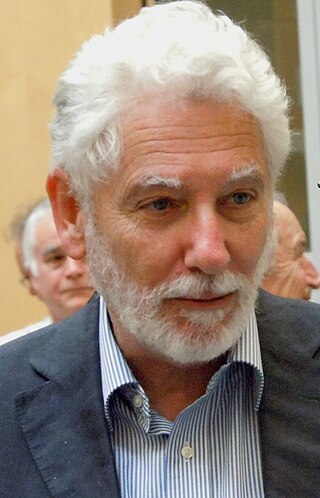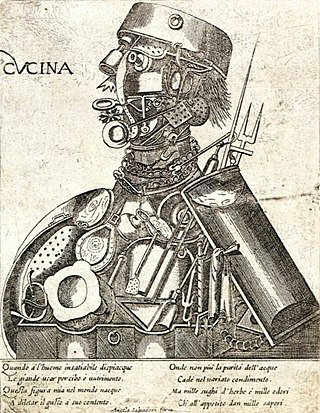Related Research Articles

Gregory Bateson was an English anthropologist, social scientist, linguist, visual anthropologist, semiotician, and cyberneticist whose work intersected that of many other fields. His writings include Steps to an Ecology of Mind (1972) and Mind and Nature (1979).
Critical thinking is the analysis of available facts, evidence, observations, and arguments to form a judgment. The subject is complex; several different definitions exist, which generally include the rational, skeptical, and unbiased analysis or evaluation of factual evidence. Critical thinking is self-directed, self-disciplined, self-monitored, and self-corrective thinking, and accordingly, a critical thinker is one who practices the skills of critical thinking or has been schooled in its disciplines. Richard W. Paul has suggested that the mind of a critical thinker engages both the intellectual abilities and personal traits necessary for critical thinking. Critical thinking presupposes assent to rigorous standards of excellence and mindful command of their use. It entails effective communication and problem-solving abilities as well as a commitment to overcome native egocentrism and sociocentrism.

Marshall David Sahlins was an American cultural anthropologist best known for his ethnographic work in the Pacific and for his contributions to anthropological theory. He was the Charles F. Grey Distinguished Service Professor Emeritus of Anthropology and of Social Sciences at the University of Chicago.

Bruno Latour was a French philosopher, anthropologist and sociologist. He was especially known for his work in the field of science and technology studies (STS). After teaching at the École des Mines de Paris from 1982 to 2006, he became professor at Sciences Po Paris (2006–2017), where he was the scientific director of the Sciences Po Medialab. He retired from several university activities in 2017. He was also a Centennial Professor at the London School of Economics.
Actor–network theory (ANT) is a theoretical and methodological approach to social theory where everything in the social and natural worlds exists in constantly shifting networks of relationships. It posits that nothing exists outside those relationships. All the factors involved in a social situation are on the same level, and thus there are no external social forces beyond what and how the network participants interact at present. Thus, objects, ideas, processes, and any other relevant factors are seen as just as important in creating social situations as humans.

Steps to an Ecology of Mind is a collection of Gregory Bateson's short works over his long and varied career. Subject matter includes essays on anthropology, cybernetics, psychiatry, and epistemology. It was originally published by Chandler Publishing Company in 1972.

Anthropology of art is a sub-field in social anthropology dedicated to the study of art in different cultural contexts. The anthropology of art focuses on historical, economic and aesthetic dimensions in non-Western art forms, including what is known as 'tribal art'.

Françoise Héritier was a French anthropologist, ethnologist, and feminist. She was the successor of Claude Lévi-Strauss at the Collège de France. Her work dealt mainly with the theory of alliances and on the prohibition of incest. In addition to Lévi-Strauss, she was also influenced by Alfred Radcliffe-Brown. She was replaced by Philippe Descola, who is the current holder of the chair of anthropology at the Collège.

Talal Asad is a Saudi-born cultural anthropologist who is currently a professor of anthropology at the City University of New York Graduate Center. His prolific body of work mainly focuses on religiosity, Middle Eastern studies, postcolonialism, and notions of power, law and discipline. He is also known for his writing calling for an anthropology of secularism. His work has had a significant influence beyond his home discipline of anthropology. As Donovan Schaefer writes:
The gravitational field of Asad’s influence has emanated far from his home discipline and reshaped the landscape of other humanistic disciplines around him.

Isabelle Stengers is a Belgian philosopher, noted for her work in the philosophy of science. Trained as a chemist, she has collaborated with Russian-Belgian chemist Ilya Prigogine and French philosopher/sociologist Bruno Latour among others, and has written widely on the history of science as well as philosophers such as Gilles Deleuze, Alfred North Whitehead, Donna Haraway, and Michel Serres.

Philippe Descola, FBA is a French anthropologist noted for studies of the Achuar, one of several Jivaroan peoples, and for his contributions to anthropological theory.
The Opposable Mind: How Successful Leaders Win Through Integrative Thinking is a book written by Roger Martin and published by the Harvard Business Review Press in 2007. The book aims to introduce a concept of integrative thinking, using academic theory and insights from prominent business leaders to substantiate the idea.

Cybernetics is a wide-ranging field concerned with circular causal processes such as feedback. Norbert Wiener named the field after an example of circular causal feedback - that of steering a ship where the helmsman adjusts their steering in response to the effect it is observed as having, enabling a steady course to be maintained amongst disturbances such as cross-winds or the tide.
Systems theory in anthropology is an interdisciplinary, non-representative, non-referential, and non-Cartesian approach that brings together natural and social sciences to understand society in its complexity. The basic idea of a system theory in social science is to solve the classical problem of duality; mind-body, subject-object, form-content, signifier-signified, and structure-agency. System theory suggests that instead of creating closed categories into binaries (subject-object); the system should stay open so as to allow free flow of process and interactions. In this way the binaries are dissolved.
Ludwig Bertalanffy describes two types of systems: open systems and closed systems. The open systems that we know of are systems that allow interactions between their internal elements and the environment. An open system is defined as a “system in exchange of matter with its environment, presenting import and export, building-up and breaking-down of its material components.” Closed systems, on the other hand, are held to be isolated from their environment. Equilibrium thermodynamics, for example, is a field of study that applies to closed systems.

Graham Harman is an American philosopher and academic. He is Distinguished Professor of Philosophy at the Southern California Institute of Architecture in Los Angeles. His work on the metaphysics of objects led to the development of object-oriented ontology. He is a central figure in the speculative realism trend in contemporary philosophy.

Cyborg anthropology is a discipline that studies the interaction between humanity and technology from an anthropological perspective. The discipline offers novel insights on new technological advances and their effect on culture and society.
This bibliography of anthropology lists some notable publications in the field of anthropology, including its various subfields. It is not comprehensive and continues to be developed. It also includes a number of works that are not by anthropologists but are relevant to the field, such as literary theory, sociology, psychology, and philosophical anthropology.
Sharon Jean Traweek is associate professor in the Department of Gender Studies and History at University of California, Los Angeles. Her book Beamtimes and Lifetimes: The World of High Energy Physicists, which explores the social world of particle physicists, has been cited in thousands of books and articles relating to the sociology of science and translated into Chinese in 2003.
The ontological turn is an increased interest in ontology within a number of philosophical and academic disciplines during the early 2000s. The ontological turn in anthropology is not concerned with anthropological notions of culture, epistemology, nor world views. Instead, the ontological turn generates interest in being in the world and accepts that different world views are not simply different representations of the same world. More specifically, the ontological turn refers to a change in theoretical orientation according to which differences are understood not in terms of a difference in world views, but a differences in worlds and all of these worlds are of equal validity.
References
- ↑ Eduardo Kohn awarded 2014 Bateson Prize | http://www.culanth.org/fieldsights/625-eduardo-kohn-awarded-the-2014-bateson-prize Archived 2016-01-31 at the Wayback Machine
- ↑ Reviews at University of California Press http://www.ucpress.edu/book.php?isbn=9780520276109
- ↑ Kohn, Eduardo (2013) How Forests Think: Towards and Anthropology Beyond the Human, University of California Press
- ↑ Fortier, Martin (May 2018). "Of Trees and Signs". Books & Ideas.
- ↑ Hau vol. 4 No.2 (2014), http://www.haujournal.org/index.php/hau/issue/view/hau4.2
- ↑ On selves, forms, and forces | http://www.haujournal.org/index.php/hau/article/view/hau4.2.014/1129
- ↑ All too human (still): A comment on Eduardo Kohn's How forests think